Buckmaster 7-band OCF Dipole Antenna, 300 Watts 135 feet long, 80 meters through 6 meters
$303.00
Description
Product Description
Buckmaster 8-band OCF Dipole Antenna, 300 Watts 270 feet long, 160 meters through 6 meters
Buckmaster OCF Antennas are made from the best quality materials with a completely waterproof balun and no external connectors. They are designed to give you years of trouble-free service! They are shipped ready to go with no trimming or assembly required, and are available with 300 Watt or 3,000 Watt baluns and are offered in 4, 7, or 8 band lengths.
Our antennas are a great simple way to get on the air and work multiple bands!
What You Need
- A good installation environment free of metallic objects. That includes metal poles, gutters, towers, etc. Metal objects can interfere with the operation of any antenna, ours is no exception. If you must install the OCF near metal objects, a minimum 10 feet separation is suggested.
- Something to hang the center from, such as a tree branch, non-metallic pole, or even a “messenger line”, a rope stretched tight between two supports such as trees.
- Enough ground space for the antenna, they are designed to operate in a straight line. 4-Band OCF is 68 feet long, 7-Band is 135 feet long, and 8-band is 270 feet long. With the antenna legs sloping down at the minimum 120 degree angle the 4-Band antennas need at least 60 feet of ground space from end-to-end, 7-Band antennas need at least 120 feet of ground space, and 8-Band antennas need 239 feet of ground space.
- Good quality 50 Ohm coaxial cable with appropriate power rating such as: RG58, RG8X, RG8, RG213, Belden 9913F7, Davis RF Bury-Flex. A coax with a dense (or double) braid is worth the money. Don’t lose that weak signal in the coax!
- A simple installation; ideally the coax will go directly from the antenna feed point to your transceiver with no grounding, lightning arrestors, tuners, or switches in between. Less connectors and less electronics equals more reliability.
- Center of the Buckmaster OCF about 35 feet and the ends 10 feet or higher. If you decide to have the center higher you must still maintain a 120-degree to 180-degree angle as viewed from the side. For example, if you decide to hang the center 10 feet higher at 45 feet, then the ends must correspondingly be raised 10 feet higher, to 20 feet.There are in infinite number of installation scenarios, but an ideal installation would have the center of the antenna about 20 feet away from your house or hamshack and hanging about 30 feet high from a tree branch. The ends of the antenna would be at 10 feet and tied off to tree trunks or non-metallic poles. Keep the entire antenna in a straight line and away from metal objects. Any deviation from this can affect your SWR numbers.
- Installation Instruction Sheet: Word DOC Adobe PDF. These are the instructions that ship with the antennas.
- Hang the center from an object such as a tree limb or a non-metallic pole. If hanging from a metal tower the antenna needs to be separated from the tower by a non-metallic means such as a standoff pole or hung from the tower with 10 feet of rope and pulled away from the tower with the legs of the antenna.
- If you don’t have anything to hang the center from, consider using a ‘messenger line’ between two supports (trees, etc.) consisting of a run of good quality, UV protected rope with a pulley at one support. Tie the OCF balun along this line in a spot that works for you (and will allow the balun to be reached from the ground) and run the coax away at a ninety degree angle (as possible). This takes tension off of the antenna legs and the pulley at one support makes it easy to take things down for service or inspection (be sure the rope is long enough). Also be sure to make allowances for support trees swaying in the wind by using a weight such as a gallon milk jug or two and a pulley to handle the movement of the tree supports.
- Install in a straight line, and at least 10 feet away from any metallic objects such as poles, towers, house wiring, fences, or gutters.
- Usually works best as an “inverted-V.” Erecting at least 30 feet above ground is recommended. Each end can droop up to 30 degrees from horizontal, 180-(2*30)=120 degrees total is ideal, but anything from 120 to 180 degrees should work well. Ends should be 10 feet or more from the ground for safety reasons.
- Higher is not always better. If the center is mounted too high it can be hard to get the ends high enough to maintain a 120 to 180 degree angle.

- Small lot? With the legs at a 120 degree angle as viewed from the side and depending on how you secure the ends, the 4-Band antennas need at least 60 feet of ground space from end-to-end, 7-Band antennas need at least 120 feet of ground space, and 8-Band antennas need 239 feet of ground space.
- We recommend using rope and a pulley to hang the center balun, so the antenna can be easily lowered for easy access.
- Use good quality 50 Ohm coaxial cable with appropriate power rating such as: RG58, RG8X, RG8, RG213, Belden 9913F7, Davis RF Bury-Flex. A coax with a dense (or double) braid is worth the money. Don’t lose that weak signal in the coax!
- Route coaxial feed line to the shack by running it straight down to the ground (not tied to a metallic structure or tower) and away from the antenna at a 90 degree angle as possible. The length of the feed line is not critical as the coax is NOT part of the radiating antenna. Shorter is usually better.




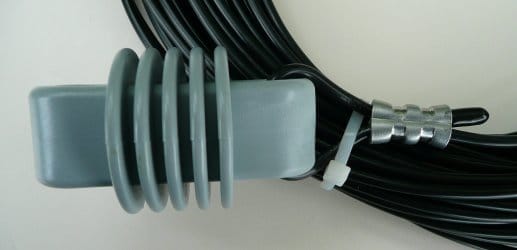
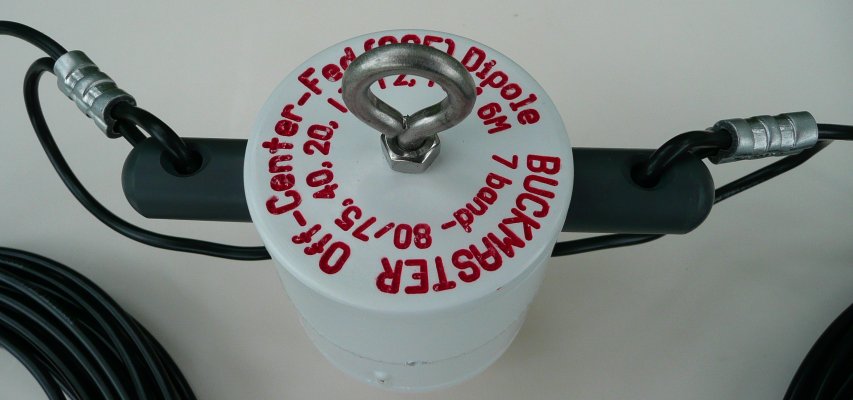
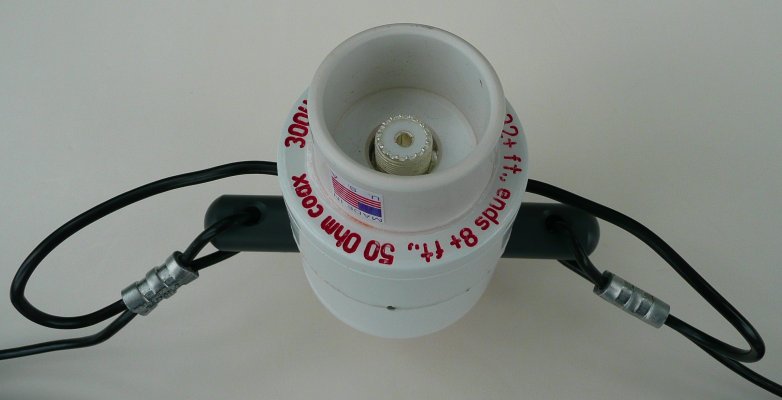
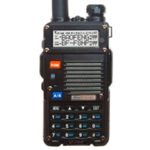
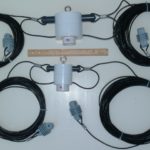
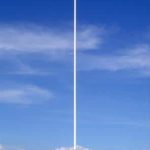

Reviews
There are no reviews yet.